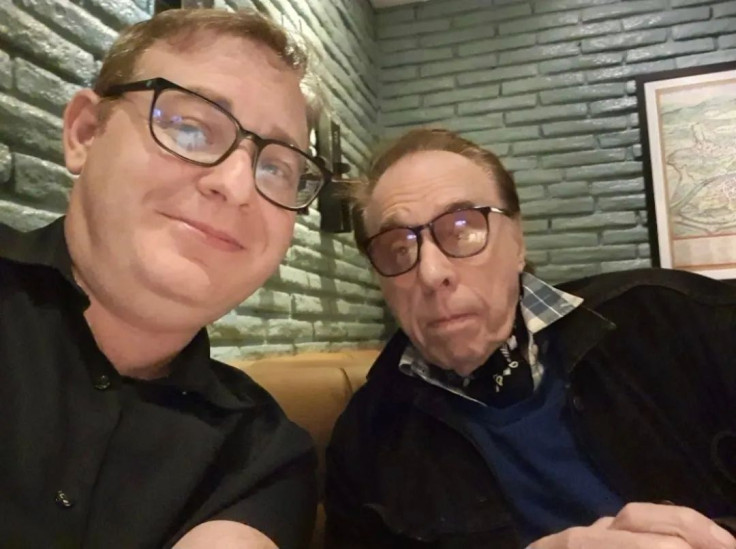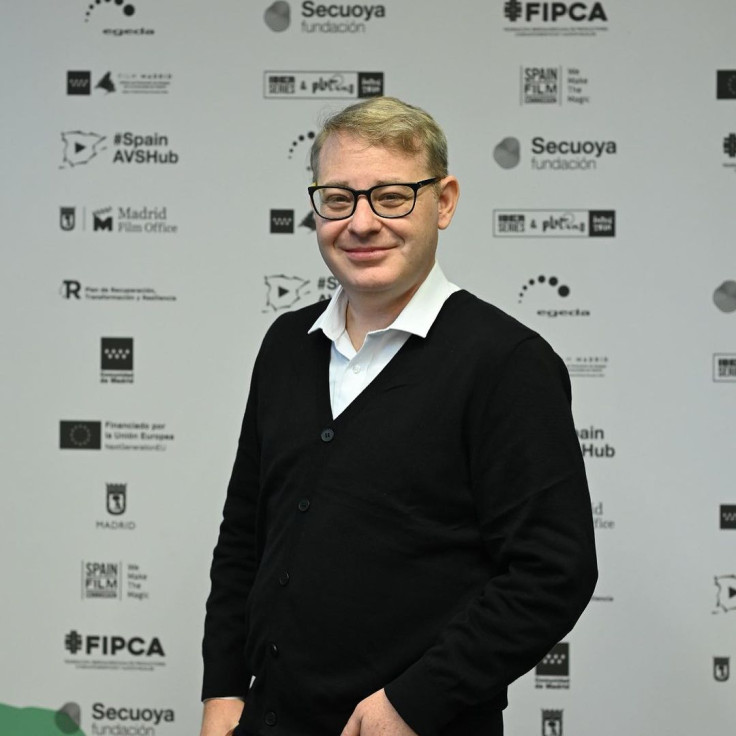
You might not be that familiar with Axel Kuschevatzky's name. But if you're Latino and follow the Oscars you'll probably recognize his face. For years he's been presenting TNT's Academy Awards Preshow — next year will be his 30th — going toe to toe with Hollywood royalty on a regular basis.
You'll also be very familiar with other areas of his work. As well as being a force on screen, Axel has also made quite the impact behind it, producing an impressive (and growing) list of Latin American films and garnering three Oscar nominations and one win in the process. El Secreto de Sus Ojos (Secret in Their Eyes), Relatos Salvajes (Wild Tales), Argentina, 1985... Some of the biggest Latin American titles of the last two decades have Axel's imprint on them.
But 2023 was a special year even for Axel's standards. It began with the Oscar campaign for Argentina, 1985, the film depicting the story behind the prosecution of the heads of Argentina's bloody military dictatorship. The film was nominated for Best International Feature Film, eventually losing to All Quiet on the Western Front. A string of hits followed suit, including La Extorsión (The Extorsion), El Rapto (The Rescue)and Puan, which recently earned a Goya nomination as best Ibero-American film, an award he also won for Argentina, 1985.
Latin American films are having their moment, coinciding with the massive success of international films overall. "The fact that you can have movies like Parasite winning the Oscar for best film is a good example", explains Kuschevatzky from his home in Los Angeles, the mecca of cinema. "Or even the success of a movie like Everything, Everywhere, All at Once, which has big chunks of the film with subtitles, shows there's a shift."
"Movies are my homeland"

Born in Argentina, raised in a Jewish household and living in Los Angeles for several years, Kuschevatzky has made a career out of embracing the role of the outsider. "I grew up being the other. That has been my whole experience as a human being. I am not American, but I am connected to a lot of different views of what it is to live in the US. And of course identity and belonging are a big chunk of my personality. And yet somehow I don't think I belong to anything but movies. That's actually my homeland. It's movies."
Having produced over 90 films and shows since 2009, Kuschevatzky has become one of the most prolific producers in the region, with a knack for understanding what resonates with audiences. But in an era in which algorithms and artificial intelligence are taking over the discussion in the film industry, he still puts all his trust into something that cannot really be measured by technology: a good story.
"I think that audiences are pretty sophisticated. They have been watching movies and TV series for years. And sometimes audiences want to watch films that are light content or a little bit dumb just for the sake of that. Audiences are basically looking for something interesting, you know and sometimes it's complex and sometimes it's not. And I do see myself as part of the audience. So if you ask me what makes me go after some specific projects it's that simple. I read the script or I have an idea and I think: "oh, this could be a good film".
"I don't want this to sound selfish because it's not, but I always question myself as a member of the audience: would I watch this? Would I connect with this?"
The Eye of the Producer

Storytelling by itself, however, can only take you so far. And that's where many of Kuschevatzky's other talents come into the fold. For example, the experience he gained early in his career working for companies like Telefónica and Viacom has proved to be essential now that he navigates the opportunities brought forward by coproductions, a must for the Latin American film industry. Argentina, 1985, to name one of his most recent efforts, was coproduced with Amazon Studios and laid bare just how much a streaming platform can boost films from developing different regions of the world.
"Because of the widespread reach of streaming services we live in a world where someone in Tegucigalpa can watch Korean soap operas on a daily basis and where someone in Asia can cry when Ricardo Darin says "nunca más" (never again) in Argentina, 1985. And I think this is a gift for storytellers but it's also a challenge. Because you have to ask yourself how to make something that's relevant for your own little village, relevant for the rest of the world as well."
Kuschevatzky has also become quite adept at understanding the festival circuit and its importance for Latin films. "Festivals basically amplify movies. It's not that being at a festival defines a movie as a good film. That's highly subjective. But it creates the perception of a movie that is worthy of your time. Because most Latin American films lack enough funding to have a proper release campaign, going to film festivals helps because it works as a PR tool."
Defining Latino Identity in Films
With such credentials to his name, Latino identity in film is a topic that Kuschevatzky can definitely talk about. But even he finds it difficult to define what exactly that means.
"Defining what is Latino it's kind of a tricky thing to do. What is Latino? What constitutes a Latino? Every single individual has a different answer. And that relates to movies too. I mean if Guillermo del Toro makes a film in Canada with an American and British cast, is it a Latino movie just because Memo is Mexican? Big question mark. If an American that has nothing to do with Mexico culturally speaking makes a film in Mexico. Is that an American film? Even if it's in Spanish?"
The issue of defining Latino identity has a lot to do with the melting pot that is Latin America. As Kuschevatzky puts it: "we are culturally linked and we share a lot of common traits but that doesn't mean that we are exactly the same." And the discussion gets even thornier when we include second generation Latinos in the US: "someone who is a second generation has a lot of Latino elements yet he grew up in a different culture."
But instead of trying to satisfy the needs of every group, Kuschevatzky reiterates that great stories are the solution. "We have to trust good stories and people will accept them regardless of language. The only thing we should do is find common ground. And that's related to the human experience, not only to being a Latino."
"We should keep working in order to make people realize that Latinos are millions and millions of consumers in the world. Spanish is the third spoken language on Earth. We're a huge Market. So we have the right to choose and we have the right to have movies in our languages and our culture and it's not only the token Latino in amazing studio films. I don't think that's enough. The way to change that specific state of things is to create our own narrative."
© 2025 Latin Times. All rights reserved. Do not reproduce without permission.





